Copyright 1999 by Jeanne Elium and Don Elium
All rights reserved.
Published in the United States by Celestial Arts, an imprint of the Crown Publishing Group, a division of Random House, Inc., New York.
www.crownpublishing.com
www.tenspeed.com
Celestial Arts and the Celestial Arts colophon are registered trademarks of Random House, Inc.
The poems that appear on are reprinted by permission of Beacon Press. The Kabir Book by Robert Bly. Copyright 1971, 1977 by Robert Bly. by The Seventies Press.
Library of Congress Card Catalog: 99-74255
eISBN: 978-0-307-77905-2
v3.1

This book is lovingly dedicated to the memory of
two fine men:
David Hinds, publisher, mentor, friend and
Lew Powers, advisor, sage, friend

C ONTENTS

P ART O NE:
Writing as Parents and Authors
P ART T WO:
The Falling YearsFrom Twelve to Fifteen
P ART T HREE:
The Landing YearsFrom Fifteen to Seventeen
P ART F OUR:
The Living YearsYoung Adulthood

A CKNOWLEDGMENTS

With many thanks to Veronica Randall, editorial director
at Celestial Arts, and to our agent, Peter Beren,
for their expertise, wise judgment, energetic work,
and supportive friendship;
and to the hundreds of parents of teenagers who asked
questions and strived to be better parents.
 Part I:Writing as Parents and Authors
Part I:Writing as Parents and AuthorsOnce the realization is accepted that even between the closest of human beings infinite distances continue to exist, a wonderful living side by side can grow up, if they succeed in loving the distance between them which makes it possible for each to see the other whole against the sky.
Rainer Maria Rilke, Letters: 1910-1926
 J EANNE
J EANNE
As we set out to write this book, I ask myself why the idea of adolescence causes such a strong reaction in most people. When I tell other parents the topic of our next book, the reply is always a pleading, Could I have it now, pleeeease? Perhaps this response comes from our own memories, on some level, of the feelings of awkwardness, anxiety, confusion, self-doubt, and loneliness we experienced during those years. To parent our own children through this tumultuous time, must we, too, relive those pains? Has our own subsequent journey since puberty yielded us enough wisdom to guide our teens through adolescence unscathed? Is it actually possible to enjoy our childrens quantum leap in independence during this new stage of development without feeling a total loss of control? Can we finally put to rest the shame of old embarrassments, unforgiven mistakes, and mishandled relationships that still plague us from our high-school days? Whether or not we are prepared, having a teenager in the house brings to light buried personal issues and family struggles, like lifting old stones and finding a mess of worms beneath their earthy surfaces. All that remains unresolved within us from our own adolescence colors our vision of our teenagers experiences, reactions, and needs.
To my parenting adventure I bring the unresolved issues of confusing relationships with peers and teachers whose mixed messages led me into emotionally hurtful experiences and deep feelings of isolation and loneliness. Will my awareness that I had no one to confide in or to ask advice from lead me to intrude upon our teenage sons privacy or independent thinking? Or will I leave him to work things out on his own like I had to? My sense of loneliness led me into a whirlwind of relationships and activities that kept me constantly surrounded by people, detached from my own true feelings and needs. Might I be tempted to restrict our teens activities too much or to push him into relationships too soon, because of my own leftover fears? These personal issues will either give me the insight to be a wise guide or cloud my ability to see who our teenager really is and what he really needs. Since I am working with that valuable tool called hindsight, I hope my experiences enhance my parenting vision, and I can settle somewhere between the extremes of what I think my son should need or do. We cannot help but be influenced by our own past. Our task is to become aware of that influence and set it aside whenever necessary to deal with our teens lives, clearly and fairly.
Our teenagers world is a very different world than the one I experienced as a teenage girla small, conservative, Midwestern town in the nineteen sixties. Although we had our share of fatal car accidents, unplanned pregnancies, shoplifting, alcoholism, cigarette smoking, truancy, and fist fights, students rarely brought knives or guns to school; AIDS was unheard of; and the traffic of crack, smack, and even pot had not yet arrived. Sniffing glue or gasoline was the common way to get high, and a fathers liquor cabinet was an easy source for achieving altered states of consciousness. In some ways, I feel ill equipped to guide our teen, because the world seems a much more dangerous place than it used to be, with many more life-altering decisions to make. What if my usually law-abiding teen comes home drunk one night? Or he flat-out refuses to do his homework? Or I find condoms in his underwear drawer? Or he suddenly loses interest in everything that had given him pleasure and starts giving his personal belongings away? Or he tells us he is gay? What do I do?
It is my hope that this book will provide a structure and offer insight about who our teens are at each stage of their adolescent development. We learn where their focus of development is centered, what challenges they are and are not capable of meeting, and what they need to feel loved and a part of our family. It becomes apparent that the needs of our teens change dramatically between ages thirteen and seventeen. This philosophy of development becomes a vessel within which to hold the advice, suggestions, new insights, and guidance we hope will support you in parenting your teenagers. It is my intent that this information will help set parents free from the restricted vision and hidden fears we almost certainly bring with us from our own adolescence and enable us to see our growing children whole against the sky.
 DON
DON
At a recent Raising A Daughter workshop, Jeanne and I discussed girls and the teen years. A mother raised her hand with the following question: How do I get my daughter to tell me the truth about her thoughts and experiences of drugs and sex? Jeanne responded to her question and then asked, How old is your daughter? The mother paused and said, Well, only three. She shared that she was so worried about the teen years that she wanted to start working now on how to deal with these issues so she would be ready when the time came. This is only one example of the fears we hear from fathers and mothers who prematurely focus on teen issues, while their babies can hardly walk and talk. The adolescent years have elicited such fear in todays parents that many are afraid for their own babies to grow up!


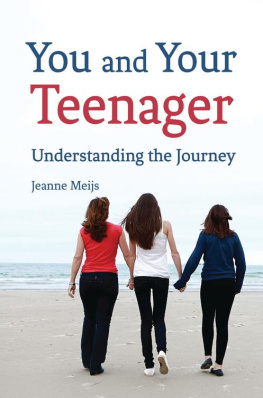
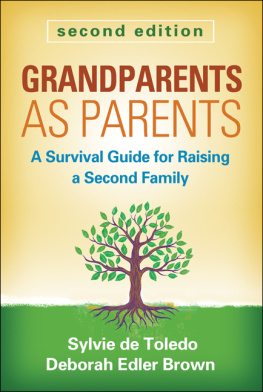
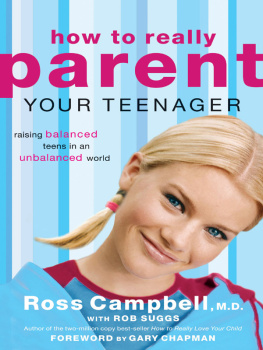
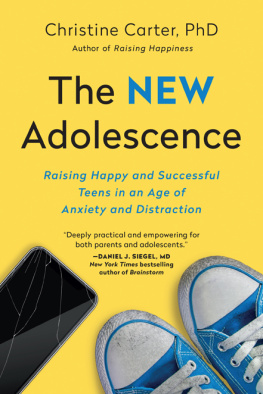
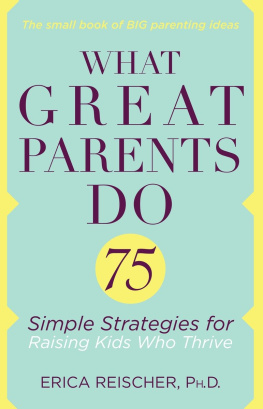
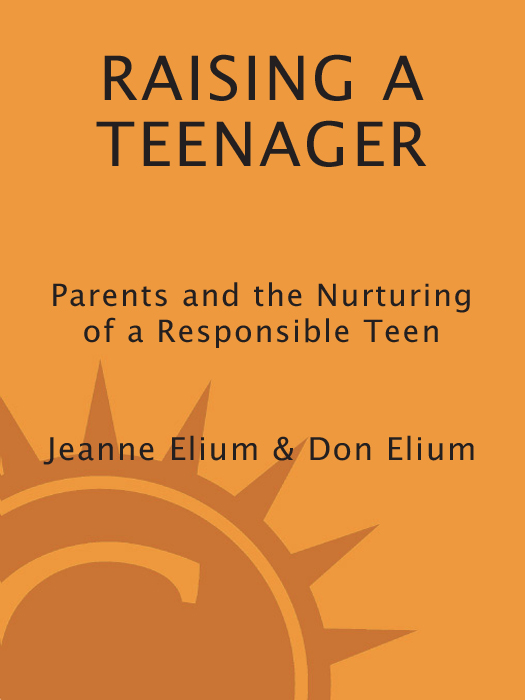
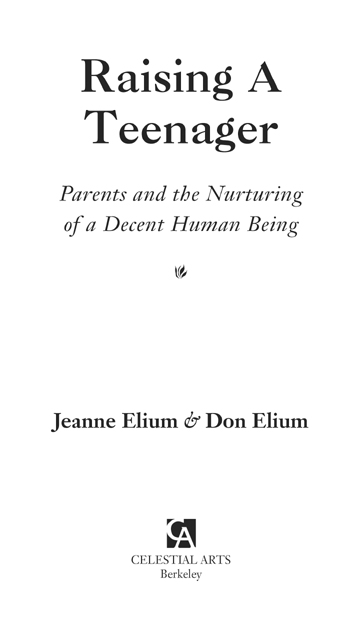

 C ONTENTS
C ONTENTS  J EANNE
J EANNE DON
DON